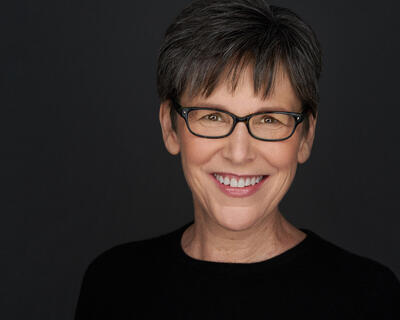Anne Stanback ’85 M.A.R. has pledged a gift to the We Are Called campaign to support the Living Village—the latest in a series of commitments she has made to YDS over the years. Construction of the regenerative student residence hall will begin this fall.
Stanback has spent more than 35 years working for lesbian, gay, bisexual, and transgender civil rights, including her work as the founding Executive Director of Love Makes A Family, Connecticut’s marriage equality campaign. Most recently, she was the Director of Strategic Partnerships with Equality Federation, the national association of statewide LGBTQ advocacy organizations. She was inducted into the Connecticut Women’s Hall of Fame in 2006, and was honored with the Divinity School’s William Sloane Coffin ‘56 Award for Peace and Justice in 2015.
Stanback is a Moderator at Immanuel Congregational Church (UCC) in Hartford, Conn., and lives in Avon with her wife, Charlotte Kinlock. In this interview, she shares her views on YDS and her choice to expand her philanthropy to address the environmental crisis.
How did your time at YDS impact your life and career?
I wanted to do social justice work and I had big questions about God and what it meant to be a Christian. I left YDS with a clearer idea of how to live out my faith in the world and a new language with which to talk about justice issues. Christian people have been vocal opponents of many of the issues I have focused on during my life and career: LGBTQ issues like employment and housing discrimination, marriage equality, and abortion rights. One thing I learned at YDS was that you can dislike the positions of others and not forget they are human beings who deserve respect.
The YDS of 2023 does not look like the YDS I attended. I loved my years there, but I would have loved the more diverse place I see today.
What part of the Divinity School’s current work most appeals to you?
I attribute my newfound interest in the Living Village to Dean Sterling. My wife and I wanted to make a significant contribution to YDS wherever our money could be used best, and his enthusiasm for this new sustainable living concept was infectious.
‘Apostles of the Environment’: Read how YDS is engaging sustainability as it enters its third century
The issue of climate change is enormous. When I was at YDS in the early 80s, there was not a theological focus on care for the planet like there is today. Sustainability hasn’t been an emphasis of my activism or philanthropy, and I felt like that needed to change. As a society, how we care for the planet and our planet’s most vulnerable beings also must change.
In the past decade I have shifted more of my energies to issues of racial justice, and it is very exciting to me that YDS is partnering with Rev. Dr. William Barber, who I think is one of the most prophetic voices in our country today. I had the chance to work with Rev. Barber’s organization while doing LGBT rights work in North Carolina, and I am eager to see how he and his team make an impact through the Center for Public Theology & Public Policy at YDS.
What inspires you about YDS’s future and how its students may impact our world?
I am a leader in my local church, and I witness how society understands Church and God. Sometimes I feel hopeless about the future of religion, but the fact that there are students at YDS struggling with our world’s most difficult challenges—and thinking about how to re-envision the ideas of both Church and God—gives me hope.
How has giving to YDS over the years been joyful to you?
I got so much from YDS. It was where I figured out my sexuality and where I came out publicly. I learned liberation and feminist theology, neither of which I studied at my liberal arts college. It was a foundational life experience.
It feels good to give, and the older I get, the more joy I get from giving.
‘We Are Called’: Learn more about the campaign for YDS
